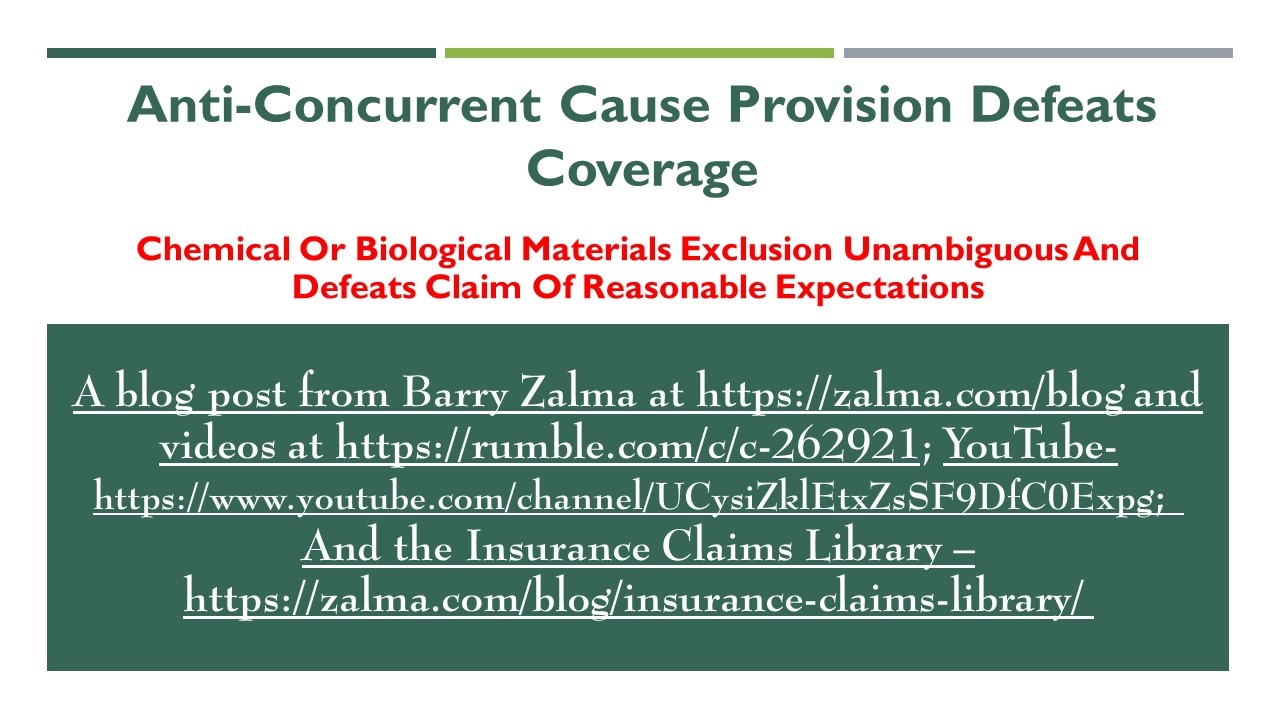Reasonable Expectations do not Defeat Clear and Unambiguous Policy Langugae
Posted 2021-02-19 14:13:04
0
3K

Patrocinados
We are 100% funded for October.
Thanks to everyone who helped out. 🥰
Xephula monthly operating expenses for 2024 - Server: $143/month - Backup Software: $6/month - Object Storage: $6/month - SMTP Service: $10/month - Stripe Processing Fees: ~$10/month - Total: $175/month
Buscar
Categorías
- Art
- Causes
- Crafts
- Crime
- Dance
- Drinks
- Film
- Finance
- Fitness
- Food
- Juegos
- Gardening
- Health
- Home
- Literature
- Music
- Networking
- Paranormal
- Other
- Politics
- Directorio
- News
- Party
- Science
- Religion
- Shopping
- Sports
- SyFy
- Politically Incorrect
- Philosophy
- Theater
- Technology
- Wellness
Read More
My Other Dream
Right before I dreamed about Joe Biden getting clubbed in the head, I dreamed that the Biden's...
Go to Jail
Go to Jail, Do Not Pass Go
Read the full article at https://lnkd.in/g-uXceWV and...
ALERT: LIBERALS PUSHING BIDEN TO DISBAND MILITARY BRANCH!
We need every branch of the military and at the end of the day, they all serve a purpose....
Court Refuses to Rewrite Policy
Court Refuses to Rewrite Policy
Read the full article at https://lnkd.in/gRy8M8Hf and see the...




Read the full article at https://lnkd.in/gQHDiST and at https://zalma.com/blog plus more than 3600 posts.
Courts deal with claims from insureds that claim their reasonable expectations of coverage should supersede the policy wording when the clear and unambiguous language of the policy establish that the expectations of the insured are not reasonable nor correct. Over the 53 years I have worked in the insurance business I have asked hundreds, if not thousands, of individuals if they read and understood their policy. Only two answered in the affirmative — both lied.
In Lang Fur Farms, Inc., et al. v. Bird Island – Hawk Creek Mutual Ins. Co., A20-0683, Minnesota Court Of Appeals (February 8, 2021) insureds challenged the partial summary judgment granted to the insurer.
ZALMA OPINION
Not all states allow the concurrent cause analysis in first party claims like Minnesota, California, for example, that first stated the doctrine, has limited it to only apply to third party claims. People who acquire insurance should read it, or hire a professional risk manager to read it for them, to ascertain coverage.